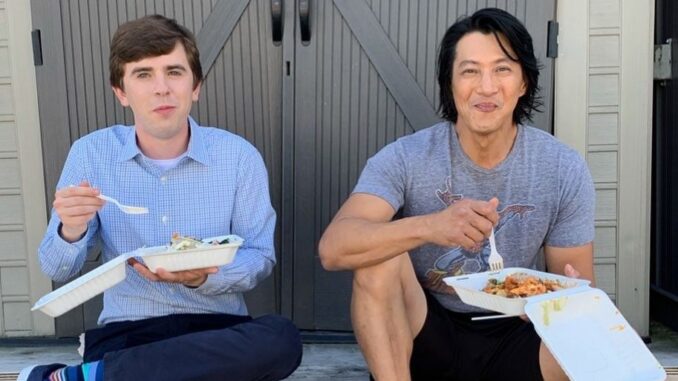
. The surgeons around you are whispering terms you barely understand. You can feel the anxiety in the room, the pressure, the uncertainty. Then, a calm but focused young man walks in. He doesn’t look at anyone. He doesn’t speak unless necessary. He simply observes the scans, listens to your heartbeat, studies the rhythm of your breathing—and within seconds, he makes a life-saving decision no one else could have seen.
That young man is Dr. Shaun Murphy, the heart and soul of The Good Doctor, a series that’s not only a fan-favorite but also a critical look at the limits of human empathy, perception, and capability. He is a brilliant surgical resident with autism and savant syndrome. His extraordinary abilities allow him to see what others miss: subtle signs, minute differences in a patient’s symptoms, and groundbreaking medical solutions hidden in plain sight.
But Shaun’s brilliance is only part of the story. The true power of The Good Doctor lies in its daring choice to challenge viewers: What happens when the very traits that make someone an outcast also make them a hero?
In many ways, Shaun is not what people expect from a doctor. He struggles with sarcasm. He doesn’t respond to emotional cues. Eye contact is difficult. His manner is blunt. He sometimes comes across as cold. And yet, behind that emotional distance lies a deep well of compassion—one that’s expressed not through words or smiles, but through precision, care, and an unwavering commitment to doing what’s right for his patients.
What makes The Good Doctor such a compelling watch is not just the high-stakes medical drama, though the show delivers on that in every single episode. It’s not just the intriguing diagnoses, the surgical dilemmas, or the tense relationships in the hospital. It’s the human question at its core: How do we measure value in a person? Is it in their charisma? Their ability to network? Their charm? Or is it in their actions, their integrity, and their ability to transform the lives of others?
From the moment Shaun walks into San Jose St. Bonaventure Hospital, the audience is thrown into this emotional conflict. The hospital board is skeptical. His fellow doctors are wary. Some patients are uncomfortable. And yet, time and again, he proves that he belongs. Not through loud speeches or grand gestures, but through quiet, relentless brilliance.

The series doesn’t sugarcoat Shaun’s challenges. He faces discrimination. He makes social missteps that carry consequences. He questions his own abilities. He grapples with loss, grief, and the overwhelming pressure to meet expectations while living in a world that isn’t designed for him. And in doing so, The Good Doctor provides one of the most respectful and layered portrayals of neurodiversity ever seen on television.
The show is also about growth—not just for Shaun, but for everyone around him. Over time, we see his colleagues begin to understand him, not just tolerate him. We watch as they become better doctors, better people, simply by learning to see beyond surface-level impressions. Characters who once doubted him become his fiercest allies. They stop asking whether he can be a good doctor—and begin asking how they can rise to meet his standard.
As the seasons progress, Shaun’s story evolves beyond the hospital walls. We witness him navigating love, heartbreak, friendship, mentorship, and identity. He falls in love. He faces the realities of long-term relationships, intimacy, and vulnerability. He makes mistakes. He learns. And most importantly, he teaches others—about patience, resilience, and what it truly means to care.
The Good Doctor doesn’t rely on clichés. It doesn’t ask the audience to pity Shaun. It invites us to respect him, to challenge our own biases, and to see the world through a different lens. It reminds us that empathy isn’t about saying the right words—it’s about doing the right thing, even when it’s hard.
For anyone who’s ever felt different, misunderstood, or underestimated, Shaun Murphy is more than a fictional character. He’s a symbol. A reminder that your value isn’t measured by how well you fit in, but by how you show up when it counts.
Whether you’re a fan of medical dramas, character-driven storytelling, or thought-provoking television, The Good Doctor offers a viewing experience that lingers long after the credits roll. It will move you, challenge you, and leave you wondering why more stories like this don’t exist on television.
